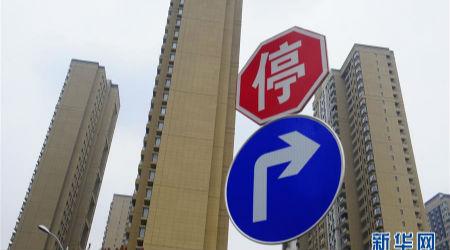
BEIJING, July 4 (Xinhua) -- From Harbin in the far north, to Shenzhen in the deep south, property markets in China's most prosperous cities are finally cooling as tough home purchase restrictions begin to bite.
Less than 9,000 existing homes were sold in the last month, down 17.4 percent from May and nearly 30 percent from the same period a year ago, according to Lianjia, China's biggest real estate broker.
Sales were around 10,800 in May and 16,900 in April, a fall perhaps triggered by local governments restriction that became widespread in mid March.
Down payments for second homes in Beijing have been raised to 60 percent, and mortgages with a maturity of 25 years or more suspended.
The market of new houses has also suffered, with sales dipping to the lowest since 2010.
"The market may again experience the 10-percent slump in second-hand home prices seen in 2014," said Hu Jinghui, vice president of broker B.A. Consulting & 5i5j Group, predicting further declines since the third quarter.
Beijing is not the only Chinese metropolis feeling the pinch of tightening rules.
New residential house prices in Shenzhen, a southern metropolis neighboring Hong Kong, fell for the ninth consecutive month in June. The decline boosted sales last month as people snapped up bargains.
Of 70 large and medium-sized cities surveyed, prices in May fell or rose more slowly in 35 of them, up from 31 in April, as they did in nine of the 15 first- and second-tier cities, the National Bureau of Statistics (NBS) said in a monthly report.
"Prices of newly built homes in the 15 major cities including Beijing, Shanghai and Shenzhen continued to stabilize in May on the back of targeted local government policies," said NBS statistician Liu Jianwei.
Property sales grew in 2016 by 22.5 percent due to two years of policy easing and pro-growth policies, including interest rate cuts.
Since October, local governments have raised down payments, increased mortgage rates and restricted purchases. China's policymakers announced in December that "houses are for living in, not for speculation."
Although there are signs of stabilizing, analysts believe the market is still at a "delicate balance" and expect firm controls to remain for the remainder of the year.
Prices in markets like Beijing will continue to fall in the second half as policy control remains tough, said Xia Dan of the Bank of Communications.
Rating agency Fitch said in a research note that first-tier cities will be more resistant to price declines.
China plans a long-term mechanism to moderate the property market given the sharp ups and downs in recent years. The mechanism, proposed by policymakers in December, will require a basket of reforms in areas including taxation, finance and land supply systems.
"It will address entrenched problems in the sector," Chen Zhenggao, minister of housing and urban-rural development, has said.




 A single purchase
A single purchase









